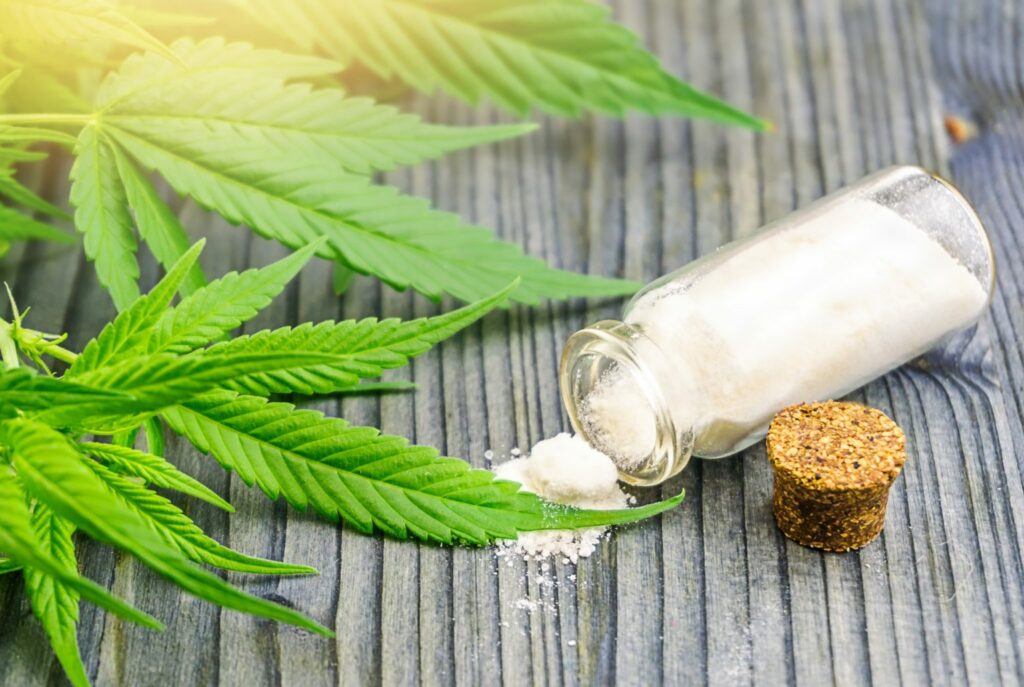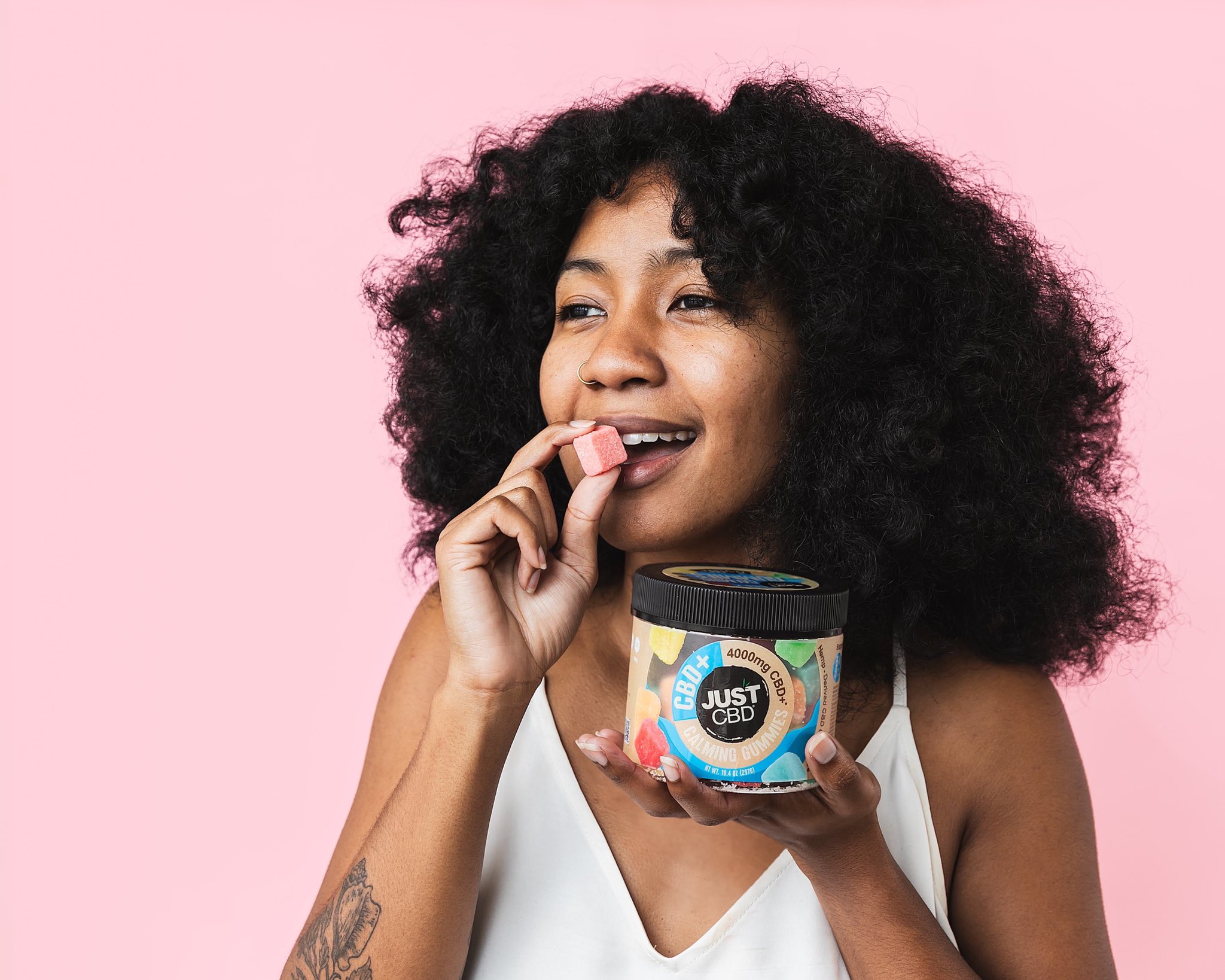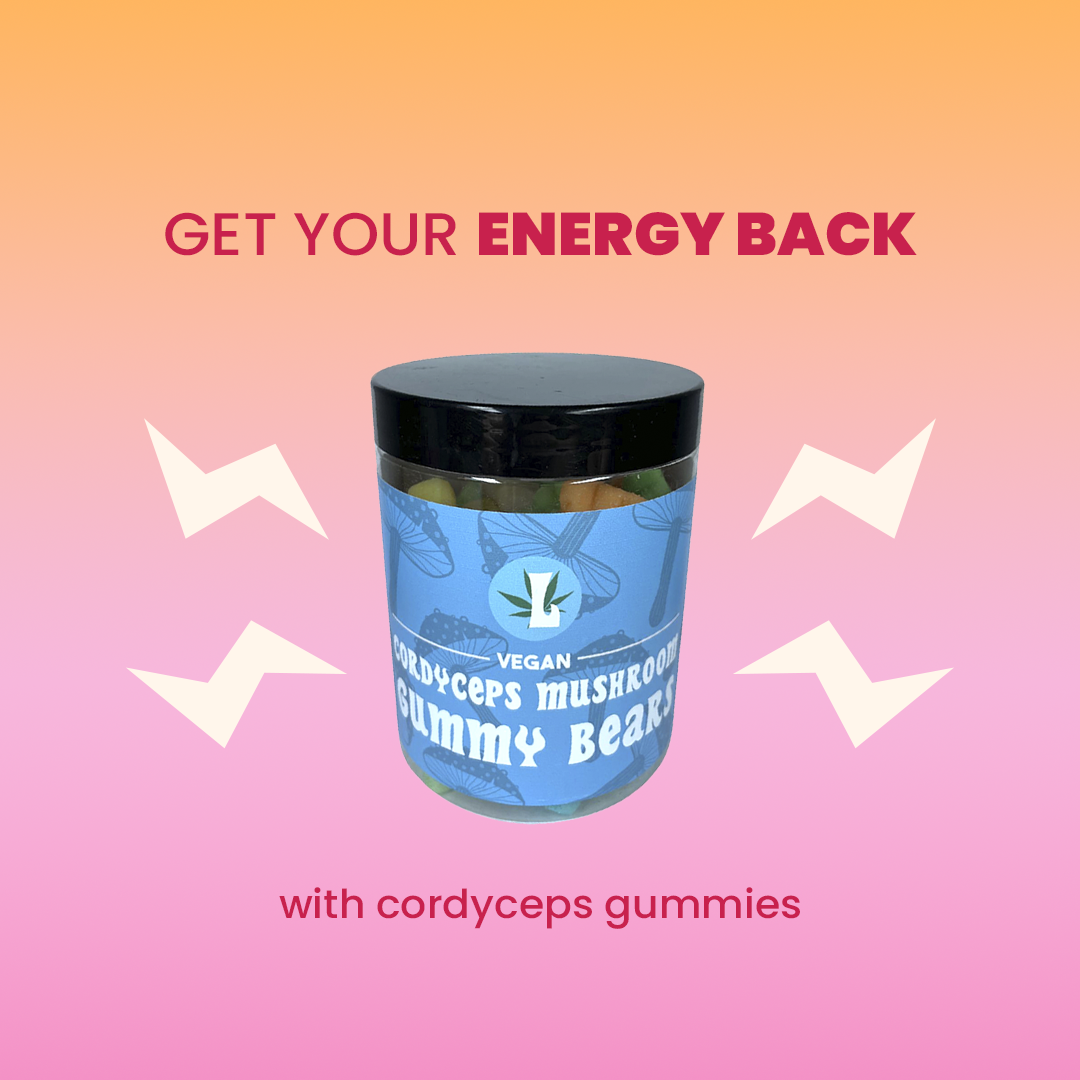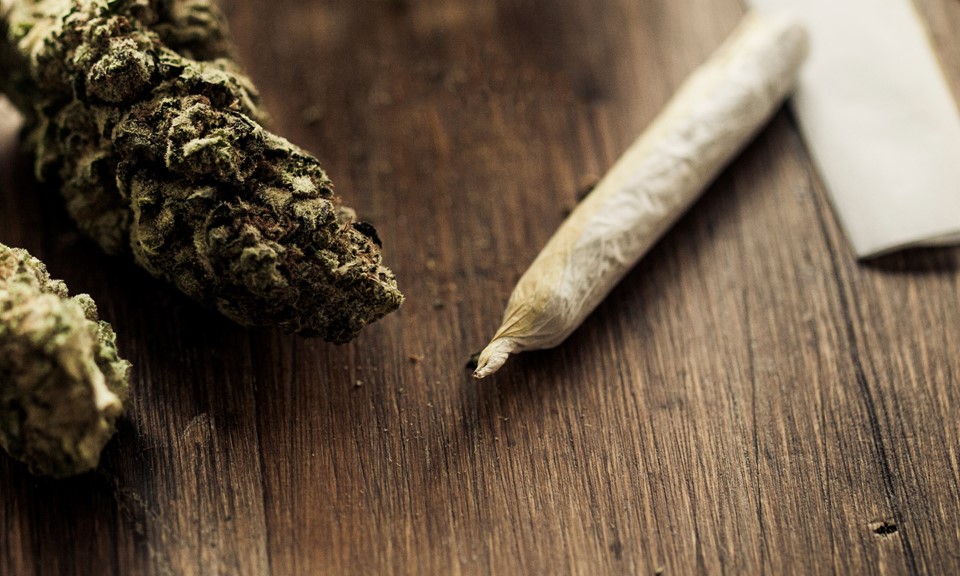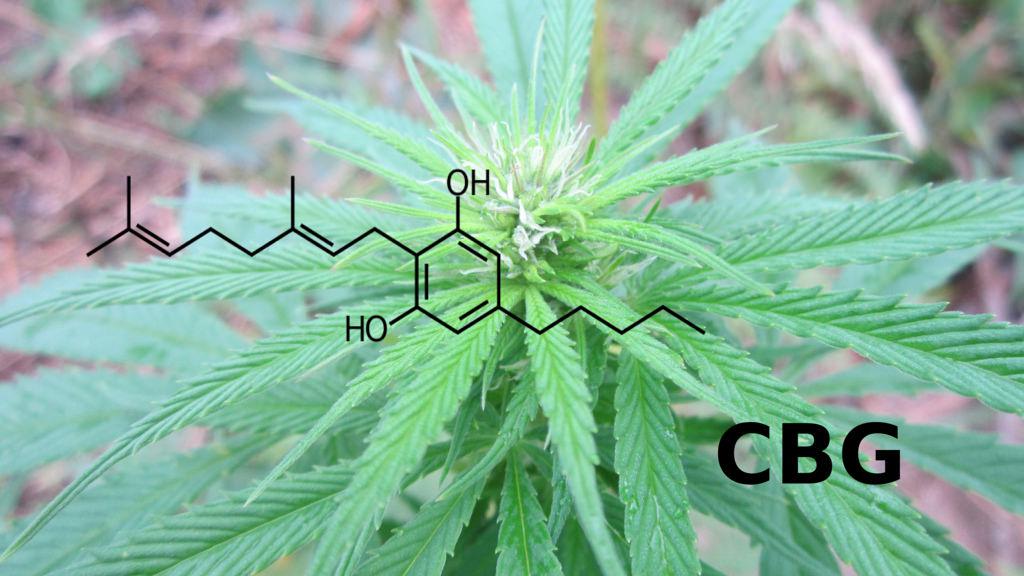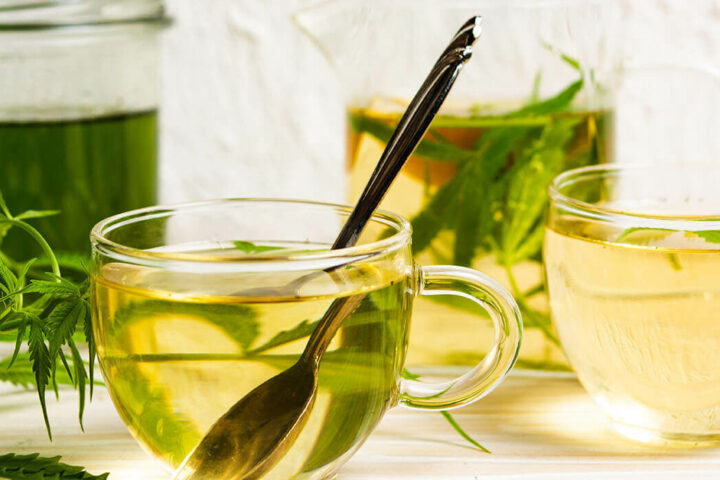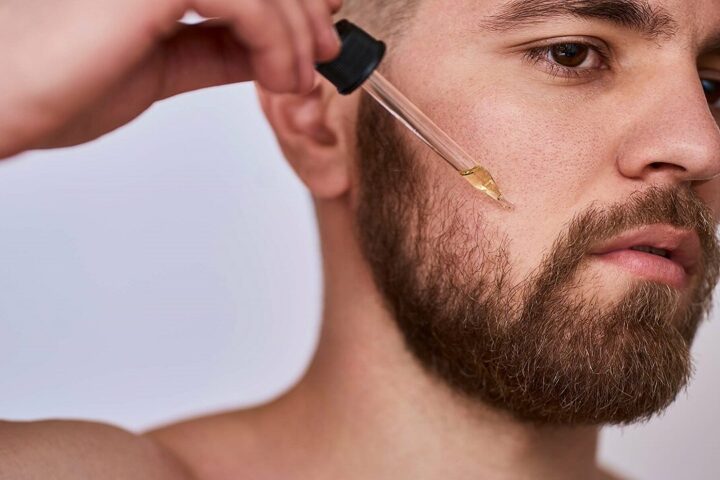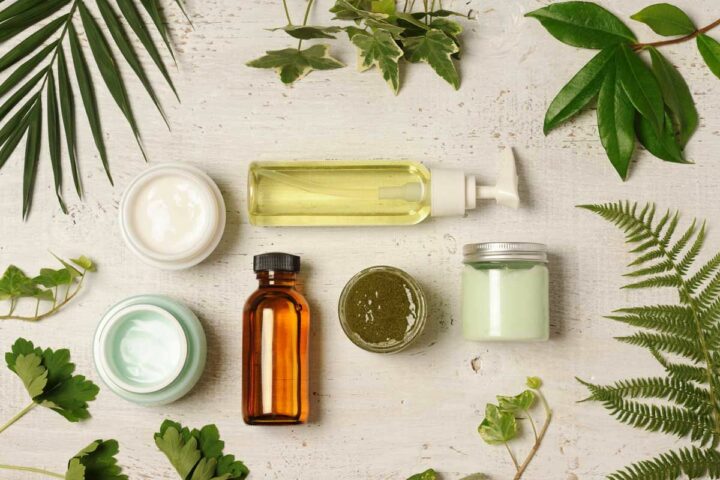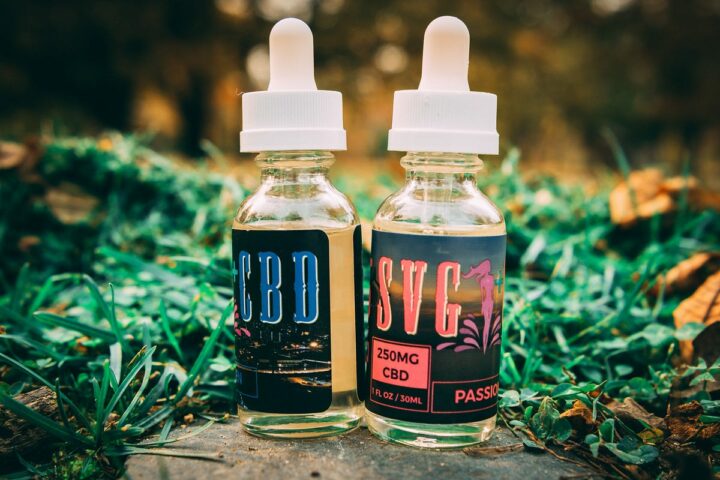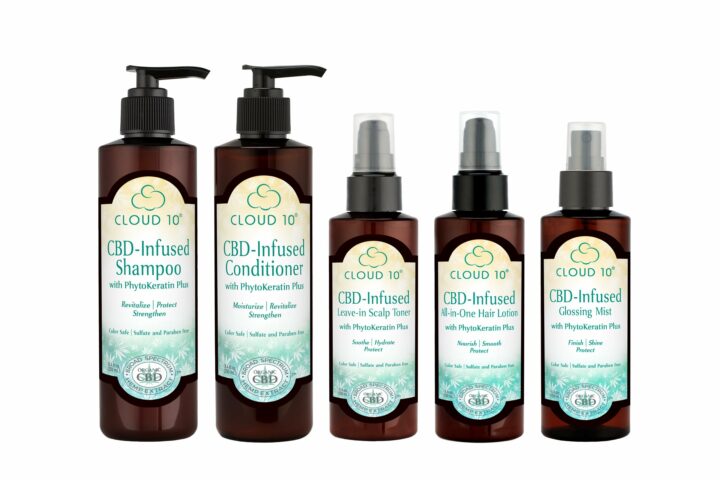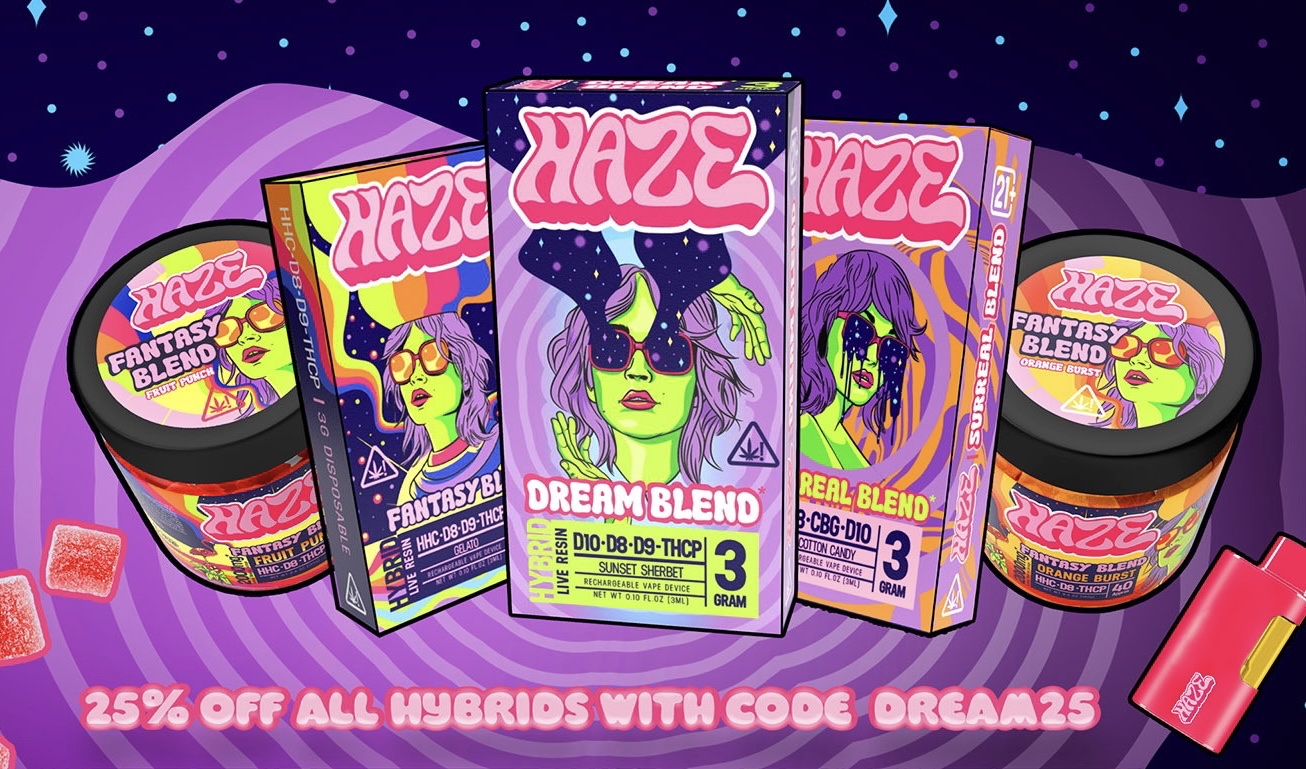CBD Isolates
What are CBD Isolates
Cannabidiol, commonly referred to as CBD, is one of the most prevalent cannabinoids found in the cannabis plant. CBD is known for its many therapeutic benefits, including its ability to reduce pain, inflammation, and anxiety. CBD isolates are a pure form of CBD, devoid of other cannabinoids and plant matter, making them an attractive option for those seeking the potential health benefits of CBD without any psychoactive effects.
In this guide, we’ll explore what CBD isolates are, how they are made, their potential benefits and drawbacks, and how to use them effectively.
What are CBD isolates?
CBD isolates are a crystalline form of pure CBD that have been extracted from the cannabis plant and purified to remove all other cannabinoids, terpenes, and plant matter. The result is a white powder that is 99% pure CBD.
CBD isolates are often used to create CBD products such as oils, tinctures, capsules, and topicals. Because they are pure, they offer a precise and consistent dose of CBD, making them ideal for those who want to know exactly how much CBD they are consuming.
How are CBD isolates made?
CBD isolates are made by extracting CBD from the cannabis plant and then purifying it through a process known as chromatography. This process involves separating the CBD from other cannabinoids and plant matter using solvents and other chemicals.
Once the CBD has been extracted and purified, it is then dried and ground into a fine powder. The resulting powder is then packaged and sold as a CBD isolate.
Potential benefits of using CBD isolates
CBD isolates offer a number of potential benefits, including:
- Precise dosing: Because CBD isolates are pure, they offer a consistent and precise dose of CBD, making it easy to measure the amount you are taking.
- No psychoactive effects: CBD isolates contain no THC, the psychoactive compound found in cannabis, so they will not produce a “high” or alter your mental state.
- Versatility: CBD isolates can be used in a variety of ways, including as a standalone product or as an ingredient in other CBD products such as oils, tinctures, capsules, and topicals.
- Potential therapeutic benefits: CBD has been shown to have a number of potential therapeutic benefits, including reducing pain, inflammation, and anxiety.
Drawbacks of using CBD isolates
While CBD isolates offer many potential benefits, there are some drawbacks to consider, including:
- Limited benefits: CBD isolates do not contain other beneficial cannabinoids and terpenes found in the cannabis plant, which may limit their potential therapeutic benefits.
- No entourage effect: The entourage effect is a theory that suggests that cannabinoids and other plant compounds work together to enhance each other’s effects. CBD isolates do not offer this effect since they do not contain other cannabinoids and plant compounds.
How to use CBD isolates
There are several ways to use CBD isolates, including:
- Sublingual: CBD isolates can be placed under the tongue and held there for 60-90 seconds before swallowing. This allows for fast absorption into the bloodstream.
- Edibles: CBD isolates can be added to food and drinks, such as smoothies or baked goods.
- Topicals: CBD isolates can be mixed with a carrier oil and applied topically to the skin for localized relief.
- Inhalation: CBD isolates can be vaporized and inhaled using a vaporizer for quick absorption into the bloodstream.
Conclusion
CBD isolates are a pure form of CBD that offer a consistent and precise dose of CBD without any psychoactive effects. While they may not offer the same potential therapeutic benefits as full-spectrum CBD products, they are versatile and easy to use, making them an attractive option for those looking to incorporate CBD into their daily routine.
When choosing a CBD isolate, it’s important to select a high-quality product from a reputable source to ensure purity and potency. It’s also important to consult with a healthcare professional before starting any CBD regimen, especially if you have any underlying health conditions or are taking medications.
Overall, CBD isolates offer a convenient and effective way to experience the potential health benefits of CBD, and they can be used in a variety of ways to suit individual preferences and needs.
How to use CBD Isolates
CBD isolates are a concentrated form of pure CBD (cannabidiol) that have been extracted from the cannabis plant and refined to remove all other cannabinoids, terpenes, and plant material. CBD isolates are versatile and can be used in a variety of ways to experience the potential benefits of CBD. Here is a comprehensive guide on how to use CBD isolates:
Understand Dosage:
Before using CBD isolates, it’s important to understand the dosage that works for you. The ideal dosage varies from person to person and depends on factors such as weight, metabolism, and the desired effect. It’s recommended to start with a small dose and gradually increase it until you find the desired effect.
Select a Delivery Method:
CBD isolates can be consumed in several ways, including oral, sublingual, and topical application. Depending on your preferences and needs, select a delivery method that works best for you.
Oral Consumption:
One of the most common ways to use CBD isolates is through oral consumption. You can add CBD isolates to your favorite food and drinks, including smoothies, oatmeal, and coffee. You can also mix CBD isolates with carrier oils, such as coconut oil or olive oil, and consume them directly.
Sublingual Consumption:
Another popular way to consume CBD isolates is through sublingual consumption. Place a small amount of CBD isolates under your tongue and hold it there for about 60-90 seconds before swallowing. This method allows for faster absorption into the bloodstream.
Topical Application:
CBD isolates can also be applied topically to the skin. Mix CBD isolates with a carrier oil, such as coconut oil or shea butter, and apply it directly to the skin. This method is commonly used to relieve pain, inflammation, and skin conditions.
Vaping or Smoking:
CBD isolates can also be consumed through vaping or smoking. This method allows for rapid absorption of CBD into the bloodstream. However, it’s important to note that smoking or vaping can be harmful to your health, and should only be done with caution.
Store Properly:
CBD isolates should be stored in a cool, dry place away from direct sunlight. It’s recommended to store them in an airtight container to prevent oxidation and maintain potency.
Seek Professional Advice:
If you’re new to using CBD isolates, it’s important to seek professional advice from a healthcare provider. They can provide you with guidance on dosage and potential interactions with other medications.
Conclusion
CBD isolates offer a versatile and potent way to experience the potential benefits of CBD. With the proper dosage and delivery method, CBD isolates can be consumed in a variety of ways to suit your needs and preferences. Remember to always store CBD isolates properly and seek professional advice if needed.
CBD Isolates Dosing
CBD isolates are a concentrated form of pure CBD (cannabidiol) that have been extracted from the cannabis plant and refined to remove all other cannabinoids, terpenes, and plant material. It’s important to understand the correct dosage when using CBD isolates to ensure you get the most benefit without experiencing any negative side effects. Here is a comprehensive guide on CBD isolates dosing:
Start with a Low Dosage:
When first starting with CBD isolates, it’s important to start with a low dosage and gradually increase it as needed. A low dosage can range from 5-10mg per day.
Increase Dosage Gradually:
If you’re not experiencing the desired effect, you can increase the dosage gradually until you find the dosage that works best for you. Increase the dosage by 5-10mg per day, every week until you achieve the desired effect.
Consider Your Body Weight:
The ideal dosage varies from person to person and depends on factors such as weight and metabolism. As a general rule, you should take 1-6mg of CBD for every 10 pounds of body weight.
Understand the Concentration:
CBD isolates come in different concentrations, so it’s important to understand the concentration before dosing. The concentration is the amount of CBD per gram of isolate. For example, if you have a 1-gram jar of CBD isolate with a concentration of 1000mg, then each 1mg of isolate will contain 1mg of CBD.
Consider the Purpose:
The dosage of CBD isolates may vary depending on the purpose for taking it. For example, a lower dosage may be suitable for promoting relaxation, while a higher dosage may be needed for treating severe pain or anxiety.
Consult with a Healthcare Professional:
If you’re new to using CBD isolates or have any health concerns, it’s important to consult with a healthcare professional before using it. They can provide you with guidance on the appropriate dosage based on your individual needs and health status.
Monitor Your Response:
After you have found the ideal dosage, it’s important to monitor your response to CBD isolates. If you experience any negative side effects, such as fatigue, nausea, or dizziness, lower your dosage or stop using it altogether.
Conclusion
CBD isolates dosing is important to ensure you get the most benefit from CBD without experiencing negative side effects. Starting with a low dosage and gradually increasing it as needed is the best way to find the ideal dosage for you. Consider your body weight, the concentration of the CBD isolate, and the purpose for taking it when determining your dosage. Consult with a healthcare professional if needed and monitor your response to CBD isolates.
Benefits of CBD Isolates
CBD isolates are a concentrated form of pure CBD (cannabidiol) that have been extracted from the cannabis plant and refined to remove all other cannabinoids, terpenes, and plant material. CBD isolates offer a variety of potential benefits, including:
Pain Relief
CBD isolates may help reduce pain by interacting with the body’s endocannabinoid system, which regulates pain perception. CBD isolates may help alleviate chronic pain, neuropathic pain, and pain associated with inflammation.
Anxiety and Depression
CBD isolates may help reduce anxiety and depression by interacting with serotonin and other neurotransmitters in the brain. Studies have shown that CBD may help alleviate symptoms of anxiety and depression without the negative side effects associated with pharmaceutical medications.
Neuroprotection
CBD isolates may help protect the brain from damage and degeneration. Studies have shown that CBD may have neuroprotective properties that could help prevent or reduce the risk of conditions such as Alzheimer’s, Parkinson’s, and multiple sclerosis.
Anti-inflammatory
CBD isolates may have anti-inflammatory properties that could help alleviate inflammation throughout the body. Chronic inflammation has been linked to a range of conditions, including autoimmune disorders, diabetes, and cancer.
Epilepsy
CBD isolates have been approved by the FDA as a treatment for two rare forms of epilepsy, Lennox-Gastaut syndrome and Dravet syndrome. Studies have shown that CBD may help reduce the frequency and severity of seizures in individuals with these conditions.
Sleep
CBD isolates may help improve sleep quality and quantity. Studies have shown that CBD may help reduce insomnia and improve sleep quality in individuals with sleep disorders.
Addiction
CBD isolates may help reduce cravings and withdrawal symptoms associated with addiction. Studies have shown that CBD may help reduce drug-seeking behavior and improve outcomes in individuals with addiction.
Conclusion
CBD isolates offer a range of potential benefits, including pain relief, anxiety and depression, neuroprotection, anti-inflammatory effects, epilepsy treatment, sleep improvement, and addiction reduction. However, it’s important to note that more research is needed to fully understand the potential benefits and risks of using CBD isolates. It’s also important to consult with a healthcare professional before using CBD isolates, especially if you have any health concerns or are taking other medications.
Legality of CBD in the UK
The legality of CBD (cannabidiol) in the UK is a complex issue that is often misunderstood. Here is a comprehensive guide on the legality of CBD in the UK:
CBD is not a controlled substance
CBD is not classified as a controlled substance under the Misuse of Drugs Act 1971 in the UK. This means that CBD is legal to possess, sell, and consume as long as it contains less than 0.2% THC (tetrahydrocannabinol), the psychoactive compound found in cannabis.
CBD products must meet certain criteria
To be legal in the UK, CBD products must meet certain criteria. They must be derived from an industrial hemp strain that is approved by the EU, contain less than 0.2% THC, and be labeled as a food supplement or cosmetic product. It is also important to note that the quality and safety of CBD products can vary widely, so it’s important to choose a reputable and trustworthy supplier.
Medicinal CBD is legal with a prescription
In November 2018, the UK government legalized medicinal cannabis products, including those containing CBD, with a prescription from a doctor. This means that individuals with certain medical conditions may be prescribed medicinal CBD products to help manage their symptoms.
CBD in food and drink is not yet legal
Currently, CBD is not yet legal as a food or drink ingredient in the UK. The Food Standards Agency (FSA) has set a deadline of March 31, 2021, for CBD companies to apply for novel food authorization, which is required for any new food or food ingredient that was not commonly used before May 15, 1997.
CBD and driving
It is illegal to drive under the influence of drugs, including CBD. However, CBD products that contain less than 0.2% THC are unlikely to result in a positive drug test or impair driving ability.
Conclusion
CBD is legal in the UK as long as it meets certain criteria, including containing less than 0.2% THC and being labeled as a food supplement or cosmetic product. Medicinal CBD is also legal with a prescription from a doctor. However, CBD in food and drink is not yet legal, and it is illegal to drive under the influence of drugs, including CBD. It’s important to stay informed about the legal status of CBD in the UK and choose reputable and trustworthy suppliers when purchasing CBD products.
FAQs – CBD Isolates
Is CBD isolate different than CBD?
Yes, CBD isolate is different from CBD. CBD isolate refers to a pure form of cannabidiol (CBD) that has been isolated from all other compounds found in the cannabis plant, including other cannabinoids, terpenes, and flavonoids. It undergoes a refining process to remove all other plant components, resulting in a product that is 99% pure CBD. On the other hand, CBD refers to the compound cannabidiol itself, which is one of the many cannabinoids present in the cannabis plant. CBD can be derived from hemp or marijuana plants and can come in various forms, including full-spectrum CBD, broad-spectrum CBD, and CBD isolate. Full-spectrum CBD contains all the naturally occurring compounds found in the cannabis plant, including CBD, other cannabinoids, terpenes, and trace amounts of THC. Broad-spectrum CBD is similar to full-spectrum CBD but with the THC removed. CBD isolate, as mentioned earlier, is pure CBD with all other compounds removed. Each form of CBD may have different effects and uses, and the choice depends on individual preferences and needs.
Is CBD isolate legal in the UK?
As of my knowledge cutoff in September 2021, CBD isolate is legal in the UK. CBD products derived from industrial hemp containing less than 0.2% THC are generally considered legal in the UK. CBD isolate is a pure form of cannabidiol (CBD) that contains no other cannabinoids, including THC. Therefore, it typically falls within the legal requirements for CBD products in the UK. However, it’s important to note that regulations regarding CBD products may evolve, so it’s advisable to stay updated on the latest guidelines and consult with local authorities or legal professionals for the most accurate and current information.
What are the side effects of CBD isolate?
CBD isolate is generally considered safe and well-tolerated by most individuals. However, like any supplement or substance, it can potentially cause side effects in some people. Commonly reported side effects of CBD isolate include dry mouth, drowsiness, fatigue, changes in appetite, and gastrointestinal discomfort. It’s worth noting that these side effects are typically mild and temporary, and they may vary depending on the individual’s sensitivity to CBD and the dosage consumed. CBD isolate does not contain THC, the psychoactive compound found in cannabis, so it does not produce the “high” associated with marijuana use. Nevertheless, it’s important to start with a low dosage and gradually increase if needed, as high doses of CBD may increase the likelihood of experiencing side effects. It’s advisable to consult with a healthcare professional before using CBD isolate, especially if you have any underlying health conditions or are taking other medications, to ensure it is safe and suitable for you.
Is CBD isolate potent?
CBD isolate is considered potent in terms of its CBD concentration. It is a highly concentrated form of CBD that contains no other cannabinoids, terpenes, or plant compounds. CBD isolate typically consists of 99% pure CBD, making it one of the most concentrated CBD products available. Due to its high potency, CBD isolate can be particularly useful for individuals who prefer precise dosing or those who want to avoid other cannabinoids or trace amounts of THC. However, it’s important to note that the potency of CBD isolate does not necessarily translate to stronger or more significant effects. The effectiveness of CBD depends on various factors, including individual body chemistry, dosage, and the specific condition being addressed. It’s advisable to start with a low dosage and gradually increase if needed to find the optimal balance of potency and effectiveness for your specific needs. Consulting with a healthcare professional can also provide guidance on appropriate dosing and usage.
Is CBD isolate stronger than CBD?
CBD isolate is not necessarily stronger than CBD itself. CBD isolate refers to a pure form of cannabidiol (CBD) that has been isolated from all other compounds found in the cannabis plant, including other cannabinoids, terpenes, and flavonoids. It typically contains 99% pure CBD. On the other hand, CBD can be derived from hemp or marijuana plants and can come in various forms, including full-spectrum CBD, broad-spectrum CBD, and CBD isolate. Full-spectrum CBD contains all the naturally occurring compounds found in the cannabis plant, including CBD, other cannabinoids, terpenes, and trace amounts of THC. While CBD isolate is highly concentrated in terms of CBD content, it does not necessarily mean it is stronger in terms of its effects. The effectiveness of CBD depends on various factors, including individual body chemistry, dosage, and the specific condition being addressed. Some individuals may find full-spectrum or broad-spectrum CBD products, which include other compounds in addition to CBD, to be more effective due to the potential synergistic effects of these compounds. It’s important to choose the form of CBD that best suits your needs and consult with a healthcare professional for personalized guidance.
How long does it take for CBD isolate to kick in?
The time it takes for CBD isolate to kick in can vary from person to person. Factors such as metabolism, dosage, and method of consumption can influence the onset of effects. Generally, when taken orally, CBD isolate may take around 30 minutes to 2 hours to be absorbed and start working. Sublingual administration, where the CBD isolate is placed under the tongue and allowed to dissolve, may result in a faster onset, with effects typically felt within 15-30 minutes. The duration of effects can also vary, typically lasting for a few hours. It’s important to note that individual responses to CBD isolate can vary, and some individuals may experience faster or slower onset of effects. It’s advisable to start with a low dosage and gradually increase if needed to find the optimal balance for your specific needs. Consulting with a healthcare professional can also provide guidance on dosage and usage.
How much CBD isolate should you take daily?
The ideal daily dosage of CBD isolate can vary depending on individual factors such as body weight, metabolism, and the specific health condition being addressed. It is generally recommended to start with a low dosage and gradually increase until you achieve the desired effects. A typical starting dosage for CBD isolate is around 10-20 milligrams (mg) per day. However, it’s important to note that everyone’s response to CBD can differ, and some individuals may require higher or lower dosages. It’s advisable to consult with a healthcare professional who can provide personalized guidance based on your specific needs and health circumstances. They can help determine an appropriate dosage and monitor your progress to ensure the optimal benefits of CBD isolate.
Can I just eat CBD isolate?
Yes, CBD isolate can be consumed orally by simply eating it. Since CBD isolate is in a powdered or crystalline form, it can be easily added to food or beverages. However, it’s important to note that CBD isolate has a strong, earthy taste that may not be pleasant for everyone. If you choose to eat CBD isolate directly, you can place it under your tongue and let it dissolve, or mix it into foods or drinks to mask the taste. Keep in mind that when ingesting CBD isolate, it needs to pass through the digestive system before it is absorbed into the bloodstream, which may result in a delayed onset of effects compared to other methods of consumption. It’s advisable to start with a low dosage and gradually increase if needed, and consult with a healthcare professional for personalized guidance on dosage and usage.
Does CBD isolate give you energy?
CBD isolate is not typically known for providing an energy boost or promoting wakefulness. CBD is commonly associated with promoting relaxation, reducing anxiety, and supporting overall well-being. While CBD may help alleviate symptoms that can contribute to feeling sluggish or fatigued, it does not directly provide a stimulant effect or increase energy levels like caffeine or other energizing substances. However, individual responses to CBD can vary, and some people may experience a mild increase in alertness or improved focus. It’s important to note that CBD affects individuals differently, and its effects may depend on factors such as dosage, metabolism, and overall health. If you’re specifically looking for a supplement to boost energy levels, it may be beneficial to explore other options or consult with a healthcare professional for personalized advice.
Is CBD isolate good for depression?
CBD isolate has the potential to be beneficial for individuals dealing with depression, although its effectiveness can vary from person to person. CBD has been studied for its potential antidepressant and anxiolytic (anti-anxiety) properties. It interacts with the endocannabinoid system in the body, which plays a role in regulating mood, stress, and emotions. CBD may help promote a sense of calm, reduce anxiety, and improve overall well-being, which can be beneficial for individuals experiencing symptoms of depression. However, it’s important to note that CBD isolate should not replace professional medical advice or treatment for depression. It’s advisable to consult with a healthcare professional who can provide personalized guidance based on your specific situation and determine the appropriate dosage and usage of CBD isolate or other treatment options.
Is CBD better than antidepressants?
Whether CBD is better than antidepressants depends on various factors, including individual circumstances and preferences. Antidepressants are prescribed medications specifically designed to treat depression and have been extensively studied and regulated for their effectiveness. They work by targeting specific neurotransmitters in the brain to help regulate mood. CBD, on the other hand, is a natural compound derived from cannabis plants and is being researched for its potential therapeutic benefits, including for mood disorders like depression. While some studies suggest that CBD may have antidepressant-like effects, more research is needed to fully understand its efficacy and safety compared to traditional antidepressants. It’s important to note that CBD should not be used as a replacement for prescribed antidepressant medications without consulting a healthcare professional. They can provide personalized advice and guide you in making the best treatment decisions based on your specific needs and medical history.
How much CBD isolate should I take for anxiety?
The optimal dosage of CBD isolate for anxiety can vary from person to person. It is recommended to start with a low dosage and gradually increase until you find the right balance for your needs. A typical starting dosage for anxiety is around 20-40 milligrams (mg) per day. However, individual responses to CBD can differ, and some individuals may require higher or lower dosages. It’s advisable to consult with a healthcare professional who can provide personalized guidance based on your specific circumstances and help determine an appropriate dosage. They can also monitor your progress and make adjustments as needed. It’s important to note that CBD isolate should be used as part of a comprehensive approach to managing anxiety, and it’s always best to seek professional medical advice for an accurate assessment and guidance.
What form of CBD is best for anxiety and depression?
There is no one-size-fits-all answer to this question, as the best form of CBD for anxiety and depression can vary from person to person. Different forms of CBD, such as oils, capsules, edibles, or vaping, can all be effective depending on individual preferences and needs. CBD oil is a popular choice as it offers versatility in dosage and administration. Sublingual administration, where drops of CBD oil are placed under the tongue, allows for faster absorption into the bloodstream. However, capsules and edibles provide a convenient and discreet option. Ultimately, the most important factor is choosing a high-quality CBD product from a reputable source and starting with a low dosage. It’s also advisable to consult with a healthcare professional who can provide personalized advice based on your specific condition and guide you in selecting the best form and dosage of CBD for anxiety and depression.
How long does it take CBD oil to help depression?
The time it takes for CBD oil to help with depression can vary from person to person. Some individuals may experience noticeable effects within a few days or weeks, while others may require more time for the benefits to become apparent. It’s important to note that CBD’s effects on depression can be influenced by factors such as the severity of the condition, individual biochemistry, dosage, and consistency of use. CBD works by interacting with the body’s endocannabinoid system, which plays a role in regulating mood and emotions. It may help promote a sense of calm, reduce anxiety, and improve overall well-being, which can contribute to managing symptoms of depression. However, CBD oil should not be considered a standalone treatment for depression, and it’s advisable to seek professional medical advice and consider a comprehensive approach to managing the condition, which may include therapy, lifestyle changes, and potentially other prescribed medications.
Which CBD calms you down?
Various forms of CBD can have calming effects, but the specific product that works best for calming you down may depend on personal preferences and individual responses. CBD oil, tinctures, or capsules are commonly used for their calming properties. When consumed, CBD interacts with the body’s endocannabinoid system, which plays a role in regulating stress, anxiety, and relaxation. Additionally, CBD gummies or edibles can be a convenient and tasty option. However, it’s important to note that the effectiveness of CBD in calming down can vary from person to person. It’s advisable to start with a low dosage and gradually increase as needed, and to choose high-quality CBD products from reputable sources. It’s also recommended to consult with a healthcare professional who can provide personalized guidance based on your specific needs and help you find the CBD product that is most suitable for calming you down.
- Apple Gelato Weed Strain Information - May 2, 2024
- Sweet Tart Weed Strain Information - April 27, 2024
- Expert Guide to White Fire OG (WiFi OG) Weed Strain Information - April 20, 2024
